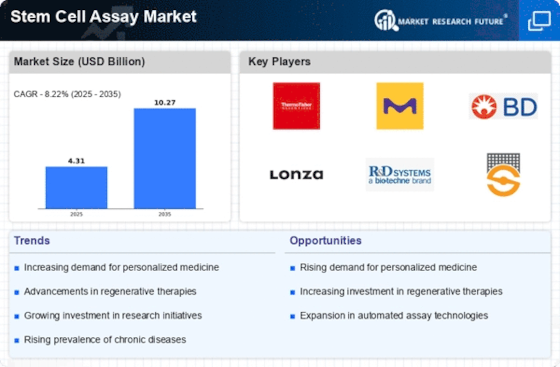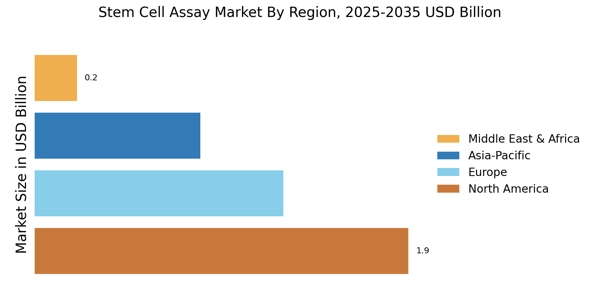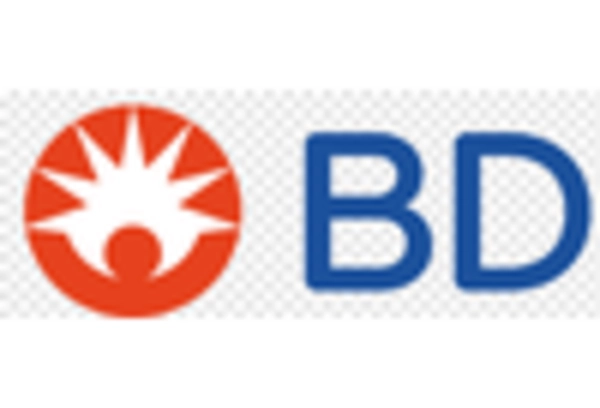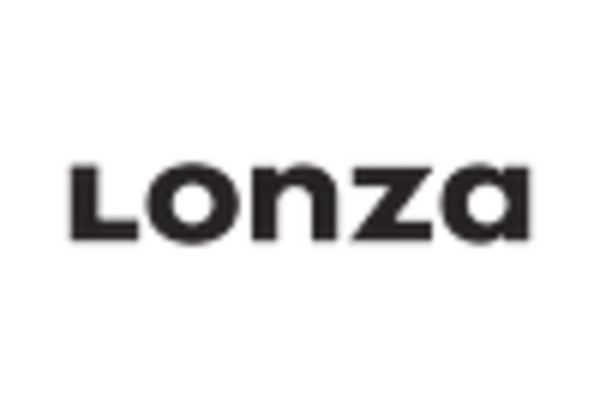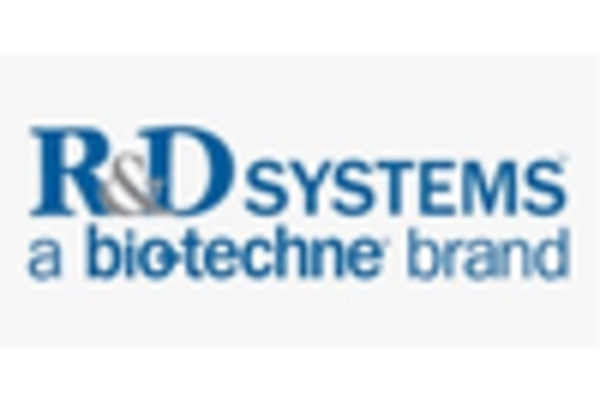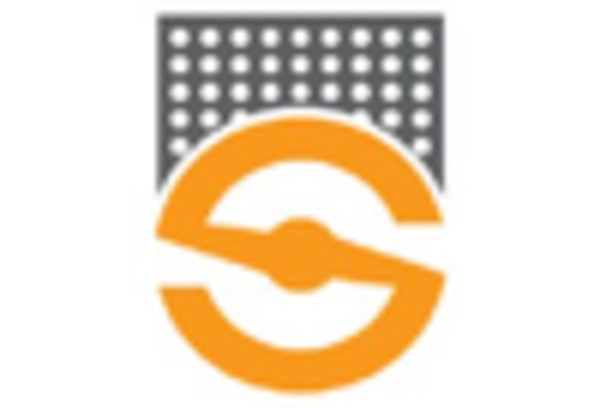Rising Demand for Personalized Medicine
The Stem Cell Assay Market is experiencing a notable surge in demand for personalized medicine. This trend is driven by the increasing recognition of the need for tailored therapeutic approaches that cater to individual patient profiles. As healthcare systems evolve, the integration of stem cell assays into personalized treatment plans is becoming more prevalent. According to recent estimates, the market for personalized medicine is projected to reach substantial figures, indicating a robust growth trajectory. This shift towards personalized therapies necessitates advanced stem cell assays, which are essential for understanding patient-specific responses to treatments. Consequently, the Stem Cell Assay Market is likely to benefit from this growing emphasis on personalized healthcare solutions, as researchers and clinicians seek to enhance treatment efficacy and patient outcomes.
Expanding Applications in Drug Discovery
The Stem Cell Assay Market is witnessing an expansion in applications related to drug discovery. Stem cell assays are increasingly utilized in the early stages of drug development to assess the efficacy and safety of new compounds. This trend is underscored by the pharmaceutical industry's ongoing efforts to streamline drug development processes and reduce costs. Recent data suggests that the use of stem cell assays can significantly accelerate the identification of promising drug candidates, thereby enhancing the overall efficiency of the drug discovery pipeline. As the demand for innovative therapies continues to rise, the Stem Cell Assay Market is poised for growth, driven by the need for reliable and predictive models that stem cell assays provide in the context of drug development.
Increased Focus on Regenerative Medicine
The Stem Cell Assay Market is significantly influenced by the heightened focus on regenerative medicine. As the field of regenerative medicine advances, the need for robust stem cell assays becomes increasingly critical. These assays play a vital role in understanding stem cell behavior, differentiation, and potential therapeutic applications. The regenerative medicine sector is projected to grow substantially, with investments pouring into research and development. This growth is likely to create a favorable environment for the Stem Cell Assay Market, as researchers and clinicians require sophisticated assays to explore the therapeutic potential of stem cells. The intersection of regenerative medicine and stem cell assays may lead to groundbreaking advancements in treating various diseases and injuries.
Technological Innovations in Assay Development
The Stem Cell Assay Market is benefiting from ongoing technological innovations in assay development. Advances in technologies such as high-throughput screening, microfluidics, and automation are enhancing the capabilities of stem cell assays. These innovations enable researchers to conduct more complex experiments with greater precision and efficiency. As a result, the demand for advanced stem cell assays is likely to increase, as researchers seek to leverage these technologies to gain deeper insights into stem cell biology. The integration of cutting-edge technologies into the Stem Cell Assay Market is expected to drive growth, as it allows for the exploration of new avenues in stem cell research and therapeutic applications.
Growing Collaborations Between Academia and Industry
The Stem Cell Assay Market is experiencing a rise in collaborations between academic institutions and industry players. These partnerships are fostering innovation and accelerating the development of new stem cell assays. By combining academic research expertise with industry resources, these collaborations are likely to enhance the quality and applicability of stem cell assays. Recent trends indicate that such partnerships are becoming more common, as both sectors recognize the mutual benefits of working together. This collaborative approach is expected to drive advancements in the Stem Cell Assay Market, as it facilitates the translation of research findings into practical applications, ultimately benefiting patients and healthcare providers.


